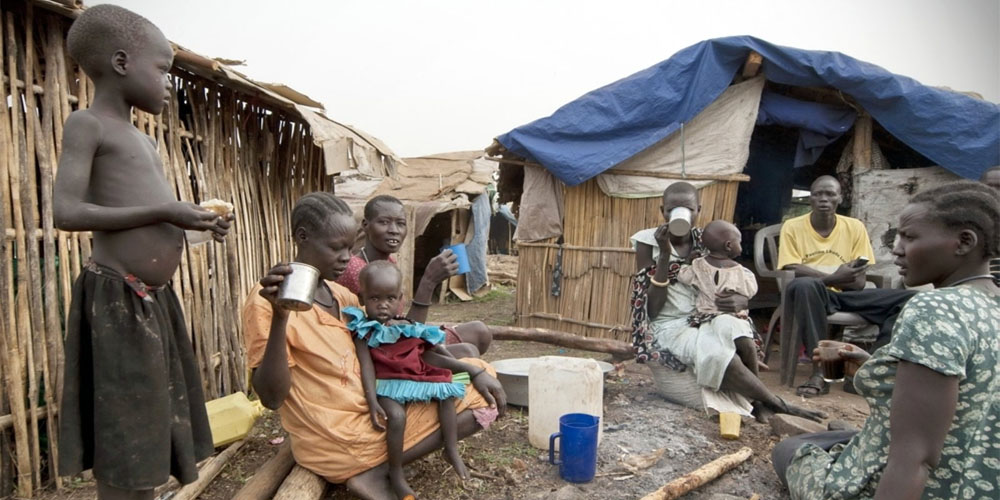The current humanitarian crisis affecting several countries, particularly in Haiti and South Sudan, is a pressing issue that has profound implications for global finance and economic stability. The intertwining of economic factors with social and environmental conditions has created a precarious situation that requires immediate attention and action. This analysis delves into the complexities of the crisis, highlighting its causes, consequences, and the urgent need for comprehensive solutions.
In Haiti, a combination of political instability, economic mismanagement, and natural disasters has led to a catastrophic humanitarian situation. The country is grappling with a staggering 4.9 million people—approximately 45% of its population—experiencing severe food insecurity. This alarming statistic reflects the deepening crisis that has been exacerbated by the recent surge in gang violence, which has hindered the distribution of humanitarian aid and disrupted daily life. The ongoing turmoil has forced many families into extreme poverty, pushing the economy to the brink of collapse. The International Monetary Fund has projected that Haiti’s economy will contract by 0.6% in 2024, a stark indicator of the adverse effects of the current crisis.
South Sudan is facing similar challenges, with over 7.76 million people—about 60% of the population—requiring humanitarian assistance. The country’s ongoing civil conflict, compounded by climatic shocks such as flooding and drought, has devastated agricultural production. In 2023, the Food and Agriculture Organization reported that 1.8 million people are in a state of emergency food insecurity, underscoring the urgent need for international support. The United Nations has warned that without immediate intervention, millions risk starvation, further destabilizing the region.
The financial ramifications of these humanitarian crises extend beyond the affected countries. The economic instability in Haiti and South Sudan poses a significant threat to regional and global markets. For instance, increased migration pressures resulting from deteriorating conditions could lead to heightened tensions in neighboring countries, potentially triggering economic repercussions. The European Union, already grappling with its own economic challenges, could see an influx of migrants seeking asylum, straining resources and increasing social unrest.
Moreover, the humanitarian crises have prompted calls for increased international aid and investment in sustainable development. Donor countries and international organizations face mounting pressure to allocate resources to address the root causes of these crises rather than merely providing short-term relief. The Global Humanitarian Overview report estimates that $51.5 billion is needed to address humanitarian needs globally in 2024. However, funding shortfalls persist, with only a fraction of the required aid being met. This gap between need and response highlights the urgent need for a re-evaluation of funding strategies and a commitment to long-term solutions.
Investing in sustainable agriculture and infrastructure in affected regions is crucial to rebuilding economies and enhancing resilience against future shocks. The potential for economic growth in countries like Haiti and South Sudan exists, provided that investment flows into vital sectors are prioritized. By fostering agricultural innovation and supporting small-scale farmers, nations can work toward achieving food security and economic stability. Furthermore, enhancing infrastructure—such as roads, healthcare facilities, and schools—will not only improve living conditions but also attract foreign investment, ultimately leading to a more robust economy.
The role of climate change in exacerbating these crises cannot be overlooked. As extreme weather events become more frequent, vulnerable populations will bear the brunt of these changes, leading to further economic instability. Countries heavily reliant on agriculture, like South Sudan, are particularly susceptible to climate-related disruptions. Addressing the climate crisis and implementing adaptive strategies is essential for ensuring long-term sustainability and resilience.
Ultimately, the humanitarian crises in Haiti and South Sudan represent a multifaceted challenge that requires urgent and coordinated global action. The interplay between economic instability, social unrest, and environmental factors necessitates a comprehensive response that addresses immediate needs while laying the groundwork for sustainable development. As the world grapples with these pressing issues, it is imperative that policymakers, humanitarian organizations, and global leaders collaborate to forge a path toward recovery and resilience for the affected populations. Only through a concerted effort can the international community hope to alleviate the suffering of millions and foster a more stable and prosperous future for all.
